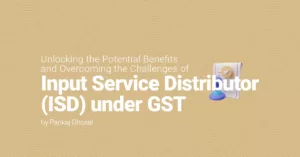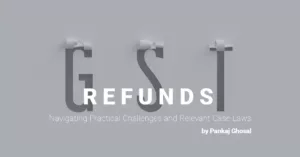Continuing from our previous blog post dealing with challenges faced by foreign entities pertaining to a registered office at the time of incorporation, this post covers additional aspects where foreign entities usually encounter difficulties in terms of time and costs involved during the execution of required documents.
Company Incorporation And The Execution Of Documents By Foreign Subscribers:
Legal Provisions That Became Challenges:
In accordance with the provisions of Section 7 of the Companies Act 2013 (“Act”) read with Companies Incorporation Rules 2014 (‘Incorporation Rules’) as amended from time to time, a Company is required to execute various documents that require signatures from all subscribers and directors starting from the application for the Digital Signature Certificates (“DSC”) till the issuance of the Certificate of Incorporation (“COI”). The following are the documents that require signatures and attestation:
MOA and AOA
Declarations/Affidavits to act as first director/subscriber
Address and identity proofs
D Duly executed documents in the prescribed manner are required to be submitted online with the Registrar of Companies (“ROC”) in specified forms to enable it to take further steps for COI issuance.
Talking about the manner of execution of documents, Rule 13 (5) of the Incorporation Rules states that documents executed by foreign nationals residing outside India need to be executed in the following manner:
Where Subscriber To The Memorandum Is A Foreign National Residing Outside India:
(a) in a country which is a part of the Commonwealth, her signatures and address on the MOA, AOA, and proof of identity shall be notarized by a Notary (Public) in that part of the Commonwealth.
(b) in a country which is a party to the Hague Apostille Convention (1961), his signatures and address on the MOA, AOA, and proof of identity shall be notarized before the Notary (Public) of the country of his origin and be duly apostilled in accordance with the said Hague Convention.
(c) in a country outside the Commonwealth and which is not a party to the Hague Apostille Convention (1961), his signatures and address on the MOA, AOA, and proof of identity shall be notarized before the Notary (Public) of such country and the certificate of the Notary (Public) shall be authenticated by a Diplomatic or Consular Officer empowered in this behalf under Section 3 of the Diplomatic and Consular Officers (Oaths and Fees) Act, 1948 (40 of 1948) or, where there is no such officer by any of the officials mentioned in Section 6 of the Commissioners of Oaths Act, 1889 (52 and 53 Vic.C.10), or in any Act amending the same;
(d) visited India and intended to incorporate a company, then the incorporation shall be allowed if the individual is having a valid Business Visa.
The Company registration process is a step by step process wherein the execution of documents takes place in tranches. The incorporation process is time bound and all executed documents need to be submitted within 20 days from the date of incorporation. In case of registration of Wholly Owned Subsidiary (“WOS”) or Company with foreign subscribers/ directors, the following challenges took place:
Challenge 1:
Typically, getting the documents notarized/apostilled/consularized outside India from the Indian Embassy of respective countries is a time-consuming exercise that may take anywhere between 15-20 days, even more in some cases. Further, it also involves substantial cost which invites additional discomfort to the clients.
Since in our case, the subscribers/promoters and directors were residing in China at the time of execution of documents, this requirement stipulated under the law had to be adhered to. The reduction in timeline for submission of other documents to 20 days requires a prompt response in terms of getting the documents legalized as per prescribed procedure.
Solution Proposed:
As per Rule 13 (5) (d) stipulated above, the provision states that in case the subscribers to the MOA have visited India and intend to incorporate a company, in such case the incorporation shall be allowed if, he/she has a valid Business Visa. Given this option provided under the Rules, we suggested the client to plan a visit to India during their incorporation process. This recommendation was given considering that the subscribers/promoters in any case would have to schedule their visit to India going forward, at the time of opening of bank account since bankers usually prefer a face-to-face meeting while executing account opening documents. In any case, after obtaining Certificate of Incorporation (‘COI’), other registrations are required to be undertaken which further involved signatures at the time of execution of such documents.
Therefore, in this case, the client was able to schedule the travel plan to India for a period of 10-15 days to facilitate execution of incorporation documents, without having additional time and cost to be incurred in the process of approaching the Indian Embassy in China. Their presence in India would further facilitate <facilitated> quick and easy execution of documents for other registrations, as well. Further, we also contacted the bankers to schedule a meeting with the client during their visit to get the bank account opened for their company.
In instances where the body corporate might be a subscriber/promoter and where the requirement of notarized/apostilled/consularized was mandatory, we suggested the following approach:
Before the name approval was accorded by the ROC, the documents required for the next steps were drafted and sent to the client for the execution upfront. It was possible to adopt this approach since there was a level of certainty that the applied name will be approved without clarifications being sought by the ROC.
This was ensured by exercising vigilance at the time of filing the name availability application, wherein due consideration was given to the adherence of the Name Availability Guidelines prescribed under the Act. By the time the ROC accorded its approval on the name application, the documents were already during their execution process.
Challenge 2:
In line with the requirements stipulated under Section 7 of the Act, a private company is required to have a minimum of two members at the time of formation. In case of WOS, usually the authorized representative of the parent company and a foreign nominee shareholder act as subscribers to the MOA and AOA to fulfil the requirement of minimum two subscribers. In such cases, though the company gets registered, the following challenges has been faced during their routine compliance with the law:
After incorporation, a company needs to convene board meetings and general meetings (the Annual General Meeting and the Extra-Ordinary General Meeting (‘EGM’) during the financial year. In case of EGM, Section 103 of the Act specifically requires the physical presence of at least two shareholders/ members in person, in India to validly constitute the quorum.
In most cases, it was seen that the foreign nominee shareholder and the authorized representatives of the parent company were individuals for whom travelling to India at a short notice or specifically for meeting the quorum requirement was not feasible. This hindered the routine operations of the company and led to increased cost of compliances. Based on our experience, as a proactive step, to avoid such issues going forward, we suggested the following:
Where the initial plan of the company was to appoint a foreign national in case of the nominee shareholder (on behalf of the foreign parent company), we explained the risks involved for the limited purposes of the compliances in the Act. It would have been a challenge for such nominee foreign shareholder to make himself available in India on the date of the meeting, in case where the business was required to be urgently transacted.
Foreseeing this challenge, it was suggested that either the resident director or any person who is usually available in India can be registered as a nominee shareholder. The quorum requirement can also be met in times of urgent business to be transacted. This recommendation helped the client in saving time and costs involved in undertaking day to day business operations of the Company.
Revisions from the MCA on the Act
A much-needed respite has been recently granted to the WOSs, whereby the Ministry of Corporate Affairs (‘MCA’) has notified the commencement of the amended Section 100 of the Act. As a result, a WOS can now convene general meetings (not Annual General Meetings) outside India. This shall facilitate and ensure that the direct stakeholders are able to attend and participate at the EGM without conferring powers to a third party not having direct involvement in such day to day business transactions.
Conclusion
Successfully completing the assignments based on aforesaid approaches increased our ability to think out of the box and the get the work done in the right manner.
—
Written by
Amrita Deol
Amrita is an Assistant Manager in the Corporate Secretarial Services team at Coinmen Consultants LLP.










